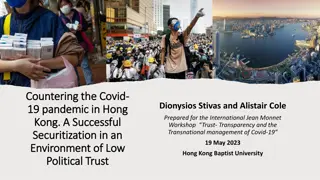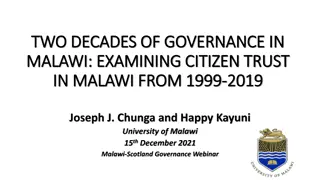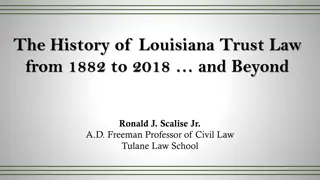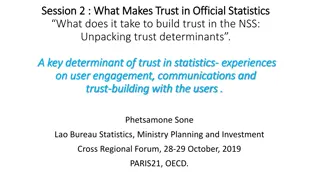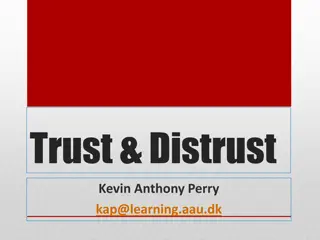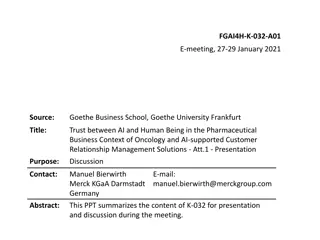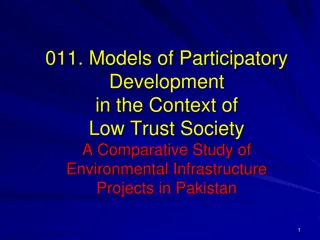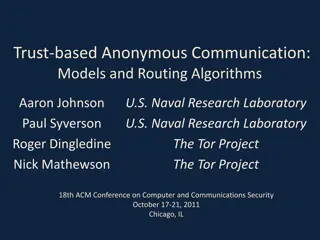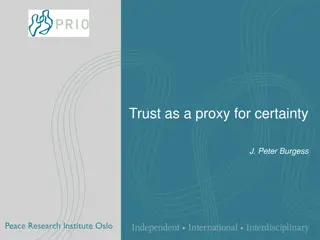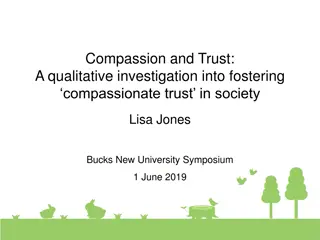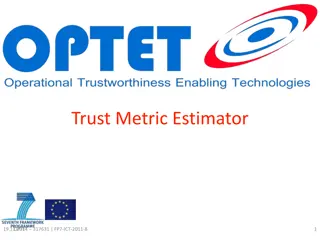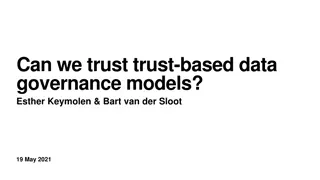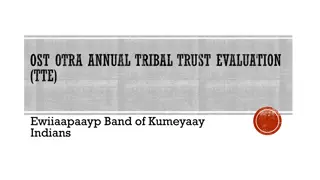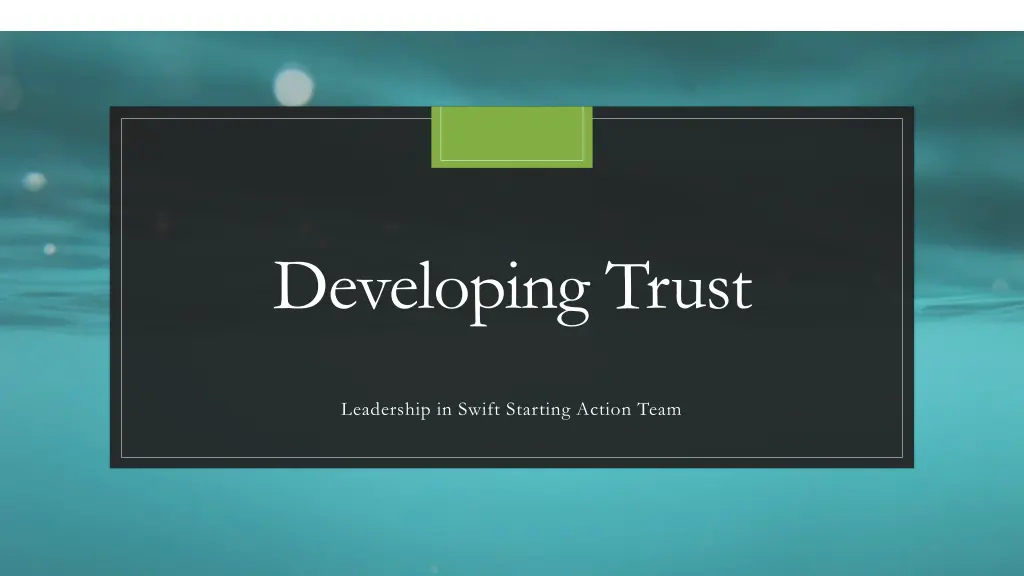
Developing Trust and Leadership in Swift Starting Action Teams
Explore the dynamics of Swift Starting Action Teams (STATs) in developing trust and leadership among well-trained professionals who must perform immediately, facing high stakes. Discover how trust evolves, how leaders communicate within STATs, and the importance of interrelating to produce successful outcomes.
Download Presentation

Please find below an Image/Link to download the presentation.
The content on the website is provided AS IS for your information and personal use only. It may not be sold, licensed, or shared on other websites without obtaining consent from the author. If you encounter any issues during the download, it is possible that the publisher has removed the file from their server.
You are allowed to download the files provided on this website for personal or commercial use, subject to the condition that they are used lawfully. All files are the property of their respective owners.
The content on the website is provided AS IS for your information and personal use only. It may not be sold, licensed, or shared on other websites without obtaining consent from the author.
E N D
Presentation Transcript
Developing Trust Leadership in Swift Starting Action Team
This Photo by Unknown Author is licensed under CC BY-NC-ND ARTEMI PANARIN & PATRICK KANE
Leadership and Trust Development What are Swift Starting Action Teams? How does trust develop? How do leaders communicate and develop trust? The story of accountant Scott Foster?
They are formed of well-trained strangers from one organization professionals with no or limited prior knowledge of others on the team. What are Swift Starting Action Teams? (STATs) They must perform well immediately performing as they warm-up. They face high stakes from the beginning. (McKinney, Barker, Davis & Smith, 2005, p. 201)
Tasks are complex and require interdependent work. Diverse set of skills that were previously developed. Continuous interrelating is required to produce an outcome. What are STATs (Meyerson, Weick & Kramer, 1996, p. 169)
Examples of STATs www.redbooth.com WSJ 2009 Chicago Tribune 2017
Theres no art to find the minds construction in the face: (Shakespeare, Macbeth, Act I Scene 4, line 288).
Personality-based Trust Institutional-based Trust Calculative-based Trust Cognitive-based Trust Unit Grouping Reputation Categorization Stereotyping How does Trust develop? (McKnight, Cummings & Chervany, 1998)
Interrelating becoming of one mind through interaction (Weick & Roberts, 1993) How do Leaders Communicate Trust? Trusting First (McKnight et al., 1998; Meyerson et al., 1996) Training, Debriefing and Brainstorming
STORY OF SCOTT FOSTER Haugh, Chicago Tribune (2018)


